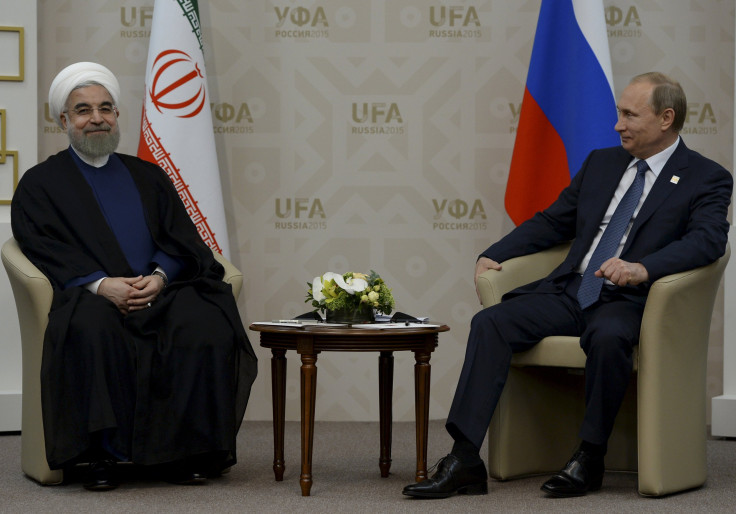US-Iran Crisis: What Does Russia Have At Stake In The Conflict?

France and other European countries have sought to ease hostility between the United States and Iran despite both sides in the standoff publicly stating that they want to avoid war.
Iran allegedly shot down an unmanned U.S. drone last week, prompting President Donald Trump to claim that he planned a retaliatory attack but had called it off with 10 minutes to spare, believing the loss of human life would not be proportionate to the downing of the drone.
Tensions between the two countries have put Russia in the spotlight. Russia has called for "civilized" dialogue amid the ongoing diplomatic crisis between the U.S. and Iran, though there are conflicts of interest.
Russia and Iran currently enjoy a friendly relationship, as both have supported the Syrian government of Bashar al-Assad during the Syrian civil war. Russia has assisted al-Assad with military airstrikes and weapons. The Iranian government has sent financial support to al-Assad to keep him in power amid western sanctions on Syria.
Iran and Russia both believe the Syrian government will help them maintain their sphere of influence in the Middle East, as the two countries engage in military coordination in Syria.
The U.S. government, on the other hand, has sided and trained rebels against al-Assad.
Russia and Iran also enjoy a strong economic relationship, and Moscow said Monday that it would take steps to counter any new U.S. sanctions towards the Islamic republic.
In 2014, Russia and Iran worked out an oil-for-goods deal, in which Russia would sell Iranian oil to third parties. In exchange, Iran would use the revenues from those oil sales to purchase Russian goods and services.
Mark N. Katz, a professor of government and politics at George Mason University, wrote in the blog LobeLog that Russia could be profiting on U.S.-Iran tensions. Katz notes that "if Trump administration sanctions succeed in reducing Iran’s oil exports, other producers—including Russia—will be able to increase their exports at Iran’s expense."
U.S.-Iran tensions have been building since October 2017, when the Trump administration pulled out of the Iran nuclear deal. The Joint Comprehensive Plan Of Action, also known as the Iran deal, aimed to get Iran to get rid of its uranium in exchange for reduced sanctions.
The Trump administration has since reinstated sanctions meant to "destroy" Iran's economy.
Trump, meanwhile, will meet with Russian President Vladimir Putin at the G-20 Summit on Friday and Saturday in Osaka, Japan.
“I will have a very good conversation with him,” Trump told reporters Wednesday.
Trump, who reportedly had a 2017 conversation with Putin that involved the silencing of an interpreter, also added Wednesday: “What I say to [Putin] is none of your business.”
© Copyright IBTimes 2024. All rights reserved.





















